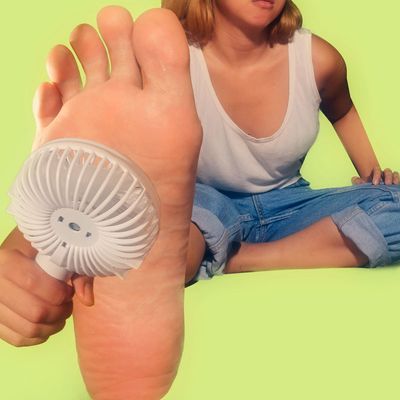How to Stop Sweaty Hands and Feet: Top Dermatology Treatments for Excessive Sweating
How to Stop Sweaty Hands and Feet: Top Dermatology Treatments for Excessive Sweating
Blog Article
Understanding the Origin of Excessive Sweating and Its Effect On Day-to-day Live
While it is commonly recognized as a physical feedback to control body temperature, the triggers for excessive sweating can differ widely amongst individuals, encompassing not just physical elements however additionally psychological and mental aspects. By delving into the origin triggers of hyperhidrosis and exploring its multifaceted impacts, a much deeper understanding of this prevalent concern can be obtained, dropping light on the complexities that people grappling with excessive sweating browse on a day-to-day basis.
Physiology of Sweat Glands
The regulation of sweat manufacturing, an important physical process, is primarily managed by the activity of gland distributed across the human body. Gland are categorized into 2 major types: eccrine and apocrine glands. Eccrine glands are the most numerous and are located in nearly all areas of the body. They play an important function in thermoregulation by secreting a watery liquid onto the skin's surface area, which assists and evaporates cool down the body down. In comparison, apocrine glands are focused in areas abundant in hair follicles, such as the armpits and groin, and their secretions are thicker and milky in appearance.
When the body temperature climbs, either because of physical task, high temperature levels, or psychological stress and anxiety, the worried system causes the sweat glands to create sweat. This sweat is composed primarily of water and electrolytes like salt and chloride. The procedure of sweat manufacturing is essential for maintaining the body's interior temperature within a narrow, optimal variety, highlighting the essential role sweat glands play in human physiology.
Triggers for Excessive Sweating
In recognizing the origin of excessive sweating, it is critical to identify the triggers that can cause this physiological response. Too much sweating, also understood as hyperhidrosis, can be motivated by numerous variables, both environmental and physiological. One common trigger is psychological stress and anxiety or anxiousness, which can promote the body's gland to create more sweat than is required for cooling. Physical effort, heats, and spicy foods are additionally understood to trigger too much sweating in individuals susceptible to this condition. Particular medical conditions like hyperthyroidism, diabetic issues, or menopause can contribute to excessive sweating as well.
Moreover, medicines such as some antidepressants, opioids, and specific supplements can additionally act as triggers for hyperhidrosis. Recognizing these triggers is necessary in managing extreme sweating effectively - How to stop sweaty hands. By determining and attending to the particular triggers that prompt excessive sweating in an individual, doctor can develop customized treatment strategies to alleviate this problem and enhance the individual's lifestyle
Medical Conditions Associated
Associated with extreme sweating are various clinical conditions that can intensify this physical reaction. One usual problem is hyperhidrosis, a disorder identified by abnormally raised sweating that surpasses the body's thermoregulatory needs. This can show up in focal areas like the palms, soles, underarms, or face, affecting a person's lifestyle as a result of social embarrassment and pain.
In addition, endocrine disorders such as hyperthyroidism, diabetes, and menopausal hot flashes can also cause too much sweating. Hyperthyroidism creates an overproduction of thyroid hormonal agents, increasing metabolic rate and setting off sweating. Diabetic issues can cause sweating episodes, especially during hypoglycemic episodes when blood glucose degrees go down also reduced. Menopausal warm flashes, credited to hormone changes throughout menopause, can trigger abrupt and extreme sweating, commonly accompanied by flushing and heart palpitations.
Furthermore, infections like consumption, HIV, and endocarditis have actually been connected with night sweats, a common symptom understood to interrupt rest and influence overall wellness. These clinical problems highlight the varied series of underlying factors that can add to too much sweating, requiring thorough evaluation and monitoring by health care professionals.
Mental and emotional Aspects

Effect On Social Communications
Excessive sweating can have profound effects on an individual's ability to engage pleasantly in social interactions. The noticeable indicators of sweat stains or damp patches on clothing can result in shame and self-consciousness, triggering people to withdraw from social scenarios. This withdrawal can impact relationships, restriction social activities, and impede individual and specialist growth.

Additionally, the anxiety and self-worth concerns coming from excessive sweating can impact communication and interpersonal abilities. People may struggle to concentrate on conversations, take part in team activities, or reveal themselves with confidence. This can lead to feelings of isolation and isolation, as social links end up being challenging to keep.
Final Thought

While it is commonly comprehended as a physiological feedback to regulate body temperature level, the triggers for too much sweating can vary widely amongst people, encompassing not only physical variables yet likewise emotional and emotional aspects. By delving into the root creates of hyperhidrosis and exploring its diverse results, a much deeper understanding of this pervasive concern can be acquired, shedding light on the intricacies that individuals grappling with excessive sweating browse on a day-to-day basis.
Physical exertion, high temperatures, and spicy foods are likewise known to activate excessive sweating in people vulnerable to this problem. By recognizing and resolving the details triggers that prompt too much sweating in an individual, check my source medical care carriers can create individualized treatment strategies to reduce this condition and improve the individual's high quality of life.
Excessive sweating can have profound impacts on an individual's ability to engage pleasantly in social interactions.
Report this page